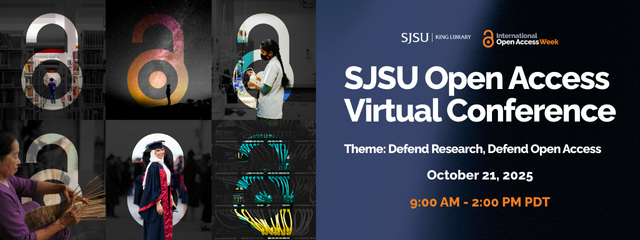Location
King Library 225/229
Start Date
25-10-2013 2:00 PM
End Date
25-10-2013 3:00 PM
Description
Massive open online courses (MOOCs) have the potential to radically reshape higher education. MOOCs are available to anyone with an Internet connection, for free or at sharply reduced cost compared to tuition for in-person classes. The pedagogical effectiveness of MOOCs is currently a topic of intense debate. Some people argue that MOOCs will never equal classroom instruction while others believe that they are a democratizing force with the potential to offer education of equal or greater quality than what we have known before.
This debate is likely to persist for years. Much less examined is an implicit assumption behind the development of MOOCs, which is that the resources utilized within these courses are freely available to everyone. Librarians--who are steeped in the realities of licensing electronic resources--know all too well that this assumption is unfounded. MOOCs are inviting lawsuits for copyright infringement, because licensed resources are only meant for the affiliates of particular institutions are not for users everywhere.
This reality presents an opportunity for librarians to select one of two paths: to advocate for the reform of copyright law; or to promote the use of open educational resources, for which no copyright concerns apply. This is the decision before us, and the viability of MOOCs rests upon selecting one of these paths.
During this talk I will offer considerations about which of these options is best suited to various institutional contexts. Audience members will depart with insights, strategies and enthusiasm for moving the appropriate agenda forward on their campuses.
Included in
The Decision: Should we Harness MOOCs to Reform Copyright Law or to Promote Open Educational Resources?
King Library 225/229
Massive open online courses (MOOCs) have the potential to radically reshape higher education. MOOCs are available to anyone with an Internet connection, for free or at sharply reduced cost compared to tuition for in-person classes. The pedagogical effectiveness of MOOCs is currently a topic of intense debate. Some people argue that MOOCs will never equal classroom instruction while others believe that they are a democratizing force with the potential to offer education of equal or greater quality than what we have known before.
This debate is likely to persist for years. Much less examined is an implicit assumption behind the development of MOOCs, which is that the resources utilized within these courses are freely available to everyone. Librarians--who are steeped in the realities of licensing electronic resources--know all too well that this assumption is unfounded. MOOCs are inviting lawsuits for copyright infringement, because licensed resources are only meant for the affiliates of particular institutions are not for users everywhere.
This reality presents an opportunity for librarians to select one of two paths: to advocate for the reform of copyright law; or to promote the use of open educational resources, for which no copyright concerns apply. This is the decision before us, and the viability of MOOCs rests upon selecting one of these paths.
During this talk I will offer considerations about which of these options is best suited to various institutional contexts. Audience members will depart with insights, strategies and enthusiasm for moving the appropriate agenda forward on their campuses.

